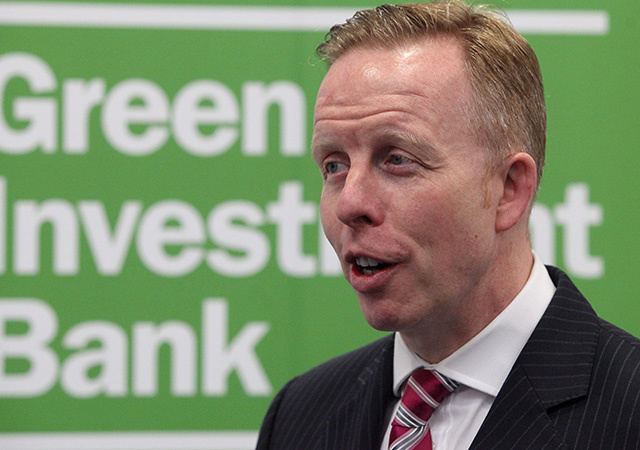
Earlier this month, the UK’s Green Investment Bank (GIB) said it had committed to lending and investing £635million during the first five months of operation.
But GIB warned that its funds had only leveraged £3 of private sector money for each GIB pound. That is much lower than the five to one ratio aimed for at its launch.
Total committed funds including GIB and private investment in the first 11 transactions add up to £2.3billion.
At last year’s All-Energy show in Aberdeen, this time last year, GIB was still an aspiration; today it is a reality . . . a positive for discussion at this year’s event.
Last year, the London Government estimated that the UK needs to plough £110billion into new green energy and electricity infrastructure by 2020 as part of a total spend of £200billion to meet climate goals. And GIB’s ability to leverage private finance is seen as the ultimate key to its success.
GIB was launched in November with £3billion of public funding. Its mission is to accelerate the UK’s transition to a greener economy, and to create an enduring institution, operating independently of government.
More than 30 British cities sought the right to host GIB, but Scotland’s prowess in renewables and Edinburgh’s financial sector were given as reasons for locating the bank in the Scottish capital.
GIB’s chief, Shaun Kingsbury, said of the initial results: “This represents an excellent level of activity and shows the impact we can have in helping the UK towards a greener economy. We are essentially a start-up and have a long road ahead of us as we build an enduring bank, but we’ve hit the ground running.”
It is expected that the bank will only be able to exercise its full borrowing powers for the initial £3billion capitalisation in 2015.
Projects so far include a new clean energy centre at Addenbrookes Hospital in Cambridge, taking a £45million (approx) equity stake in Walney Offshore Windfarms and the development of a local authority managed recycling centre in Wakefield, West Yorkshire.
In terms of its investment strategy, Kingsbury said when the bank was launched: “We will not take high-risk investments. We won’t put money into places where perhaps venture capitalists might play [a role]. We won’t provide grants or soft loans and we won’t be lender of last resort.
The bank, which currently employs 74, said that an investment alliance with Abu Dhabi-backed clean energy initiative, Masdar, has been signed to bring in additional funding to support UK projects over the next seven years.
Recommended for you
